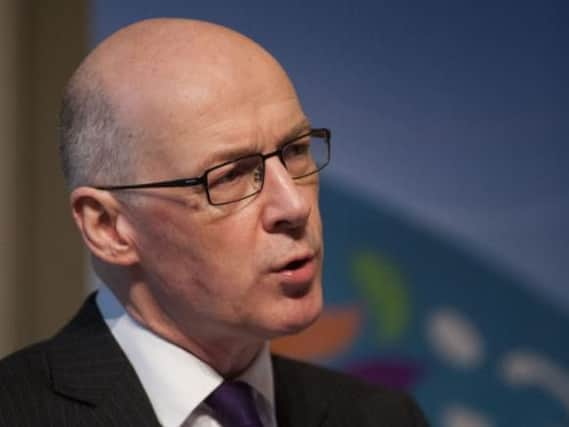Teachers face tougher maths regime to tackle national problem


The final report from the Making Maths Count group has been set up to encourage greater enthusiasm in maths among children and young people.
The Scottish Government backed study is calling for a culture change in public attitudes.
"Scotland has a maths problem," the report states.
Advertisement
Hide AdAdvertisement
Hide Ad"Too many of us are happy to label ourselves as "no good with numbers." This attitude is deep-rooted and holding our country back educationally and economically."
A series of recommendations are set out including the need to promote the value of maths as an "essential skill" for every career.
Currently, the minimum entry requirements to teacher education courses in Scotland is for a National Qualification in Maths at level 5, the equivalent of National 5 or Standard Grade Intermediate 2 level. The report says the The General Teaching Council for Scotland (GTCS) should consider raising this to level 6 (Higher level) in line with the minimum requirements for English. This is being reviewed in 2018.
"We would wish this review to consider the case for raising the minimum entry qualifications for Mathematics to the same level as that for English," the report states."
Education Secretary John Swinney said improving numeracy skills is a "key part" of the Government's flagship aim to close the attainment gap between schools in more affluent and less well off part of Scotland.
“The recommendations will complement the work we are already undertaking to improve numeracy skills, including increased investment in the Attainment Scotland Fund and our Read Write Count campaign," he said.
“It is encouraging to see so many examples in the report of the good work already taking place in classrooms to improve maths and I hope they, and the actions we will take following this report, will inspire more schools across Scotland.”
Maureen McKenna, Executive Director of Education in Glasgow, and chair of the group, said its research with teachers, pupils and the general public shows that the way to achieve this is to make maths more relevant to real life and work and more enjoyable.
"Our recommendations build upon the best work taking place within Scotland and elsewhere and aim to transform Scotland into a maths-positive nation,” she added.